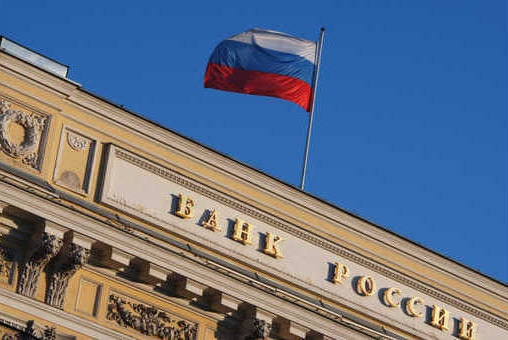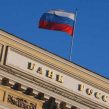
Putin’s Russia at a Crossroads Politically and Economically
Publication: Eurasia Daily Monitor Volume: 10 Issue: 63
By:

The Russian government, the expert community in Moscow and the national economic elite are actively discussing the economic future of the nation and possible drastic financial policy changes as the economy slumps into potentially long-term stagflation, which may fundamentally destabilize the regime. The elite’s discord about what to do with the Russian economy went public this week in Moscow at an annual conference at the Supreme School of Economics (Vysshaya Shkola Economiki or VShE)—Russia’s top economic university and principal government-connected economic think tank. The influential president of VShE, Yaroslav Kuzminov (55), known in Russia as “VShE rector,” is the husband of Elvira Nabiullina (49), economic development minister from 2007 to 2012 and President Vladimir Putin’s economic aide. Putin recently appointed Nabiullina the next chief of Russia’s Central Bank. Nabiullina’s nomination is expected to be rubberstamped by the Duma this month, and this may significantly change Russia’s monetary policies (Vedomosti, April 4).
In the run-up to the VShE conference, a group of high-level Russian economic experts, including top bank executives and former top state officials, published a report advising the government to ignore calls to boost the money supply by increasing government spending and lowering Central Bank lending rates to jump start the growth of the economy. The economy this year is expected to increase at a rate of two percent or less, with inflation at 6–7 percent annually. According to the experts, at present Russia cannot grow any faster. A possible monetary stimulus would pump extra liquidity into the economy, boosting inflation and increasing capital flight abroad, while not producing any sustainable additional economic growth. To resume growth at the level of some seven percent of GDP annually—as during Putin’s first two terms in the Kremlin from 2000 to 2008—Russia must undergo serious structural reforms: significantly increase labor productivity, stamp out corruption, and make the Russian market, which is dominated by state-controlled monopolies and Putin-friendly oligarchs, fairer and more competitive. To grow, Russia needs much more domestic and foreign investment, which, in turn requires a strong, non-corrupt, and independent judicial and law enforcement system, as well as a predictable and much more democratic political system (Interfax, April 2).
“Institutional reforms” intended to achieve sustainable growth through less arbitrary repression and more public accountability have many opponents within the Russian government, and these are not confined to the so-called “power fraction” of Putin-connected former KGB officials. Speaking at the VShE conference, the deputy minister of economic development in charge of strategic planning since 2008, Andrei Klepach, former VShE professor and long-time associate of Nabiullina, strongly attacked the “institutional illusion,” insisting there is no evidence linking economic growth with developing democracy and that “Russia was not doing badly with its high corruption,” citing as further examples undemocratic Belarus and Uzbekistan, which grow faster than Great Britain and France. In the 1990s, according to Klepach, Russia had greater freedom of the press and of public gatherings, while its GDP slumped by 40 percent. Under Putin, as democracy was curtailed, the economy began to grow. According to Klepach, to achieve growth, the government must spend much more on public education and infrastructure and on promoting high-tech exports (arms trade). The ruble’s exchange rate must be weakened and strict budgetary constraints loosened (Interfax, April 3).
First Deputy Prime Minister Igor Shuvalov announced at the VShE conference that the government does not intend to abandon strict budgetary rules “at present,” but hinted that if sound investment programs appear, they will be funded. Evidently, monetary easing to produce growth will be delegated to the Central Bank. Nabiullina, addressing this week a meeting of the Association of Russian Bankers, insisted that existing lending rates “are too high,” that the efforts by the Central Bank to boost liquidity will increase, and that “Russia must mostly rely on internal investment as a source of development” (Kommersant, April 4).
Since Putin returned to the Kremlin last May, the administration has been stepping up repressions to quell public political unrest that erupted in Moscow in December 2011. Draconian legislation to prevent mass pro-democracy demonstrations and suppress human rights organizations has been enacted by the Duma and signed into law by Putin. Washington has been singled out as the main culprit of this internal political unrest, accused of deliberately subverting Putin’s regime by promoting a pro-democracy movement. A number of political show trials are being prepared to terrify the Russian public as well as to discredit and destroy the protest movement. Human rights organizations have been purposely targeted recently by Russian law enforcement and tax authorities, their premises searched and hefty fines imposed on trumped up charges (Kommersant, April 4).
According to a latest poll, published by the independent Levada Center polling service, Russians believe Putin’s first priority must be economic growth (53 percent) with fighting corruption coming second at 46 percent. The continuing public revelations of state corruption that began after the ouster of Defense Minister Anatoly Serdyukov last November have been popular, but the cases disclosed are miniscule, compared with the vastness of the problem. The revelations almost exclusively involve low- and mid-level officials. Serdyukov has not been indicted, nor have any others of Putin’s top-level associates (Kommersant, April 3).
Putin’s political repressions cannot stabilize the regime, and the public anti-corruption campaign, while popular with the masses, is unnerving the ruling elite and Putin’s main power base—the corrupt bureaucracy—according to a report published this week by former Finance Minister Alexei Kudrin’s think tank. Putin’s solid political base is relatively slim and could be easily eroded. Only a quarter of the population wants the present regime “to continue as it is.” A restoration of Soviet-style “socialism” is supported by 13 percent; an authoritarian “strong hand” dictatorship is supported by 18 percent; while some 38 percent want “a European-style democracy” (Vedomosti, April 4). Despite the threat of further boosting inflation, the regime apparently seems ready to increase the money supply to stimulate economic growth, which has been a foundation of Putin’s popularity. Yet, the Kremlin does not seem ready to give any ground on political issues by beginning any true “institutional” democratization. Kudrin’s report stresses that if the regime continues to rely exclusively on oppression and handouts, possibly the last opportunity to peacefully transform Putin’s Russia may be missed (Kommersant, April 4).




